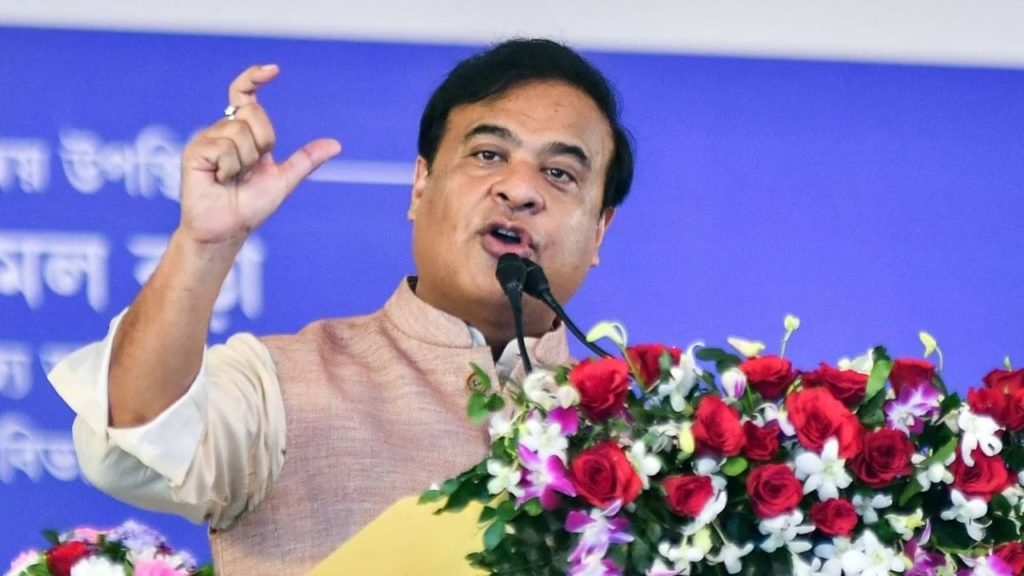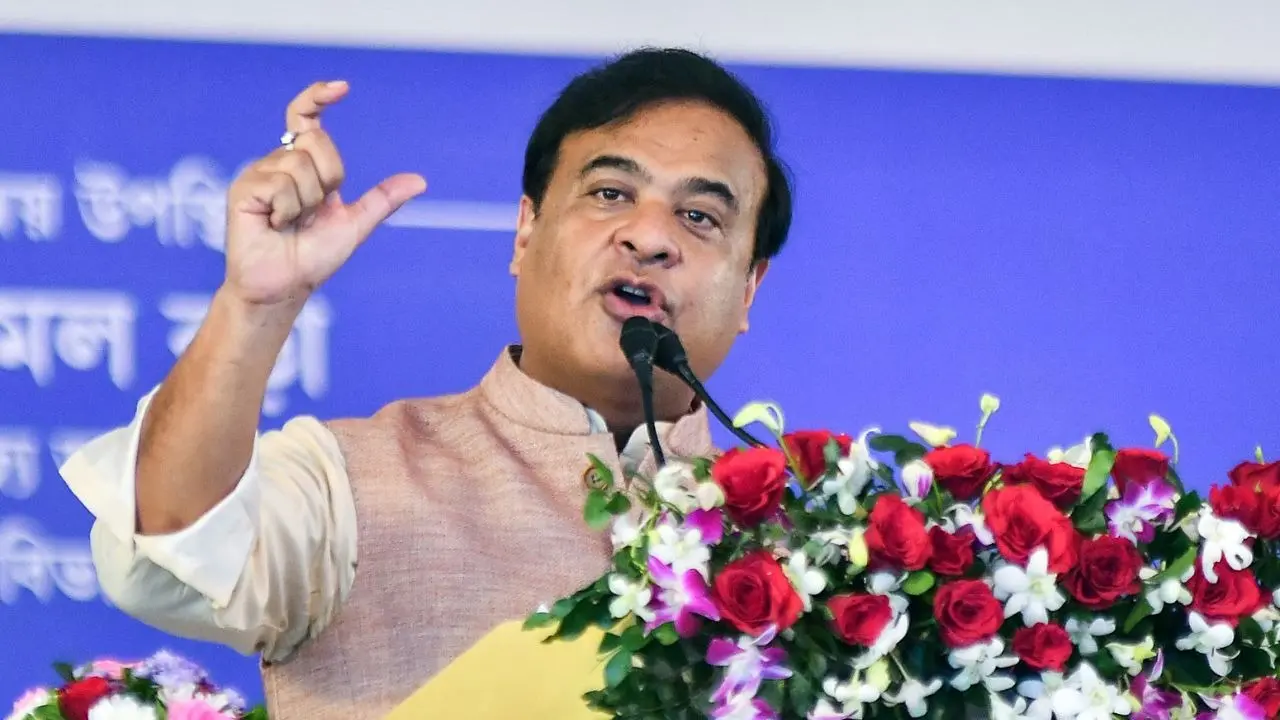

West Bengal: Himant Biswa Sarma’s taut on Mamta over violence in Murshidabad, said ’40 percent Muslim population again peace in Assam ‘. Image: ANI
Himanta Biswa Sarma on Murshidabad Violence: After passing both houses of Parliament, the Waqf Amendment Act was approved by the President and the government also issued a notification but still opposition parties and some Muslim leaders are not ready to accept that the Waqf Amendment Act has come into force. In such a situation, the leaders of opposition parties are misleading minorities by giving inflammatory speeches in their respective states. The latest case is from Murshidabad in West Bengal. Where the minorities have spread violence at the instigation of West Bengal Chief Minister Mamata Banerjee. It is not that where Muslims are more, they are creating disturbances. Assam Chief Minister Himanta Biswa Sarma lashed out at Mamata Banerjee, saying that 40 percent of the population in Assam is of Muslims but peace remains there.
Assam Chief Minister Dr. Hemant Biswa Sarma has given a clear indication to the opposition and critics, expressing his political reaction to the recently passed situation in the state that public sentiments in Assam are not against this law. The Chief Minister wrote on the social media platform ‘X’ (earlier Twitter), “Despite having about 40 percent of the Muslim population, there is peace and harmony in Assam. Spread protests were registered at only three places regarding the Waqf Amendment Act, and more than 150 people did not participate in any demonstration.”
Politically, Assam CM gave two important messages from his post
This statement of Himanta Biswa Sarma gives two important messages politically, first, the policy and decisions of the state government are receiving widespread social acceptance; And second, attempts to create misleading narrative in the name of communal harmony in Assam are not able to leave the impact on the land. This statement is considered a strategic initiative towards maintaining stability in the state and rejecting the allegations of so -called ‘religious polarization’. Through this, Sarma has indicated a strong hold and public support of his administration, as well as showing that Assam has now risen above the politics of emotional provocation.
CM Sarma credited peace to the police in Assam, a befitting reply to the opposition’s narrator
While protests are being seen in many parts of the country regarding the Waqf Amendment Act and in some states, especially in West Bengal, these demonstrations have taken violent forms, the situation in Assam looked completely different. Chief Minister Dr. Hemant Biswa Sarma has described it as a well -organized strategy of the state government and the result of law enforcement agencies. CM Sarma said in his statement on the social media platform ‘X’, “My congratulations to the Assam Police for his widespread ground work, which helped maintain peace and order. People across Assam are united beyond caste, creed, community and religion and are eagerly preparing to welcome our beloved Bohag Bihu with happiness and harmony.” Although protests were registered against the Waqf Act by Muslim groups in some parts of the state, participation in them was limited and no demonstrations were raised in any demonstrations.
Central Government Bill received extensive support in Parliament
The Waqf Amendment Act was passed by Parliament during the budget session. After the President’s approval on 5 April, this bill has taken the form of law. In the Rajya Sabha it was passed by the support of 128 votes and 95 opposition, while 288 MPs voted in favor after a long debate in the Lok Sabha, and 232 opposed it. While the opposition tried to call the bill an attack on the rights of the Muslim community, the Central and Assam government described it as a major improvement towards transparency, accountability and better management of Waqf properties.
Political message clear, Assam has risen above ‘politics of protest’
Given the statements of Chief Minister Sarma and the peaceful atmosphere in Assam, it has become clear that the people of the state are giving priority to social stability and development rather than the politics of emotional and communal provocation. The maturity that was introduced in Assam regarding this entire development, politically reflects the government’s grip and acceptance of policy. Sarma’s political message is also clear that Assam is no longer going to be a part of protests conducted with ‘toolkit politics’ or external influence.



